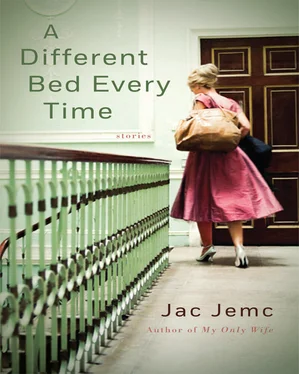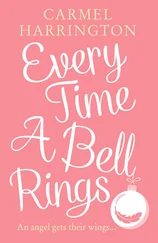I remember the pink, pulpy flower face of my grandma. She didn’t try too long to keep me. It took them a while to find her, and when they did, she required convincing to think with her own mind that I was hers. On the first day, she called me Little Bird, but by the second she’d started seeing her daughter in me, and the darkness dipped in.
I remember the expiring Phoebe family who took me in, all of them withering like they’d gone without for too long. How they convinced the state they could stand another child was beyond me, but then my roots were shallow, and they were getting more cash than the raising of me required.
I imagined myself a velvet bag of marbles loosed on a hardwood floor. I’d been scattered so quickly that there was no time to think about what direction to go. Now, I try to look back at my childhood to remember, but it’s hard to pick out moments. Every time I was placed with a new family was just a layer of the time before.
I remember the kingdom of heaven and finger touches on my forehead, like belief could seep through my skin, deep into my brain coils, and me asking questions and being told the Lord would provide any answers I needed, and scowling at being denied the opportunity to learn.
I remember listening to phone calls the blond one made to my case worker, lie-telling about some capsules she planted in my bag, and me, too young and too shy to know how to pin it back on her, but then if I won that case, if I proved I wasn’t lying, the outcome would be no different — either way they were putting me in another home, and that’s what everyone wanted.
I remember what it was to be read stories before bed, and hearing about how Goldilocks found a house where she didn’t belong, but before the bear family kicked her out, she at least got some warm food and a good nap in. I remember believing that story more than the other fairy tales, because there was no happily ever after, just Goldie running off into the woods and the bears left to deal with the feelings of their privacy having been breached.
There were houses with locks on the insides of rooms and houses with locks on the outside, and I was used to feeling trapped either way.
I remember outgrowing clothes and repairing split seams myself, my shirt getting a little smaller each time I sewed it shut. I tried to swipe dresses from my sisters, from my foster mom, but they’d swipe them back and so I’d eat little of what was put in front of me for dinner, in the hopes of better fitting the clothes the next day.
I remember the man who would play the drums in the night. I’d go downstairs to tell him I couldn’t sleep, and he’d beckon for me to come closer. He’d breathe his warm beer breath on my head while he hugged me and said he was sorry. After I’d tucked myself back in, the rhythms would start again.
An instant’s rallying glow is numbed when you dwell too low. I remember, after a hard rain that broke through the roof, being forced out onto the earth, and the wind wearing away half of my complexion. I began with an old-fashioned heart, but it was demolished every time I dropped it out of myself in purple syllables. I grew hard.
I remember the family that put the video tapes back in the wrong cases. When I thought I was going to watch a cartoon, panting men and shrieking women filled the screen with all of their skin-colored shapes.
I remember my teeth falling out my head and no one telling me they would grow back bigger and stronger. I remember trying to match my mind to each home and thinking it wasn’t normal to adjust my opinions so much. I remember learning the continents for school and thinking that if you define something big enough, it’s harder to recognize the changes.
It’s tough to remember the individuals that housed me, but I can rattle ’em off in order easy. I listened to a radio story about men who memorize the order of a shuffled deck of playing cards. They can memorize and recite each card in under two minutes, but ask ’em to tell you where the queen of diamonds is and they’d stare blankly back at you. That felt familiar.
I remember the moment I learned that one day they’d believe I was capable of caring for myself, and I remember the counting. I remember running away, trying to prove I knew better. I remember being brought back, and knowing it would only be days before they’d find a new home where they could lose me again.
At fourteen they diagnosed me with scoliosis, which basically meant my spine kept trying to sneak west. My parents had drained their bank account in a series of bad investments. My uncle, who’d cajoled my mother and father into the first round of some doofus’s pyramid scheme, had recently thrown himself off the Golden Gate Bridge. That doesn’t seem like an especially original way to die until you consider that we all live in Chicago and he had to buy a plane ticket to get himself that far.
The doctors thought the curve in my back was minor enough that it could be effectively treated with a brace. No surgery would be needed if we acted quickly. My parents paid for the brace with money they didn’t have and trusted me to use it while they carried on with their strange, self-obsessed performance of financial grief. Every night my mother rebalanced the budget, artfully arranging her ledger, bills, and adding machine on the dining room table, while my father wasted cash at the bar on the corner. It seemed like part of being married was promising to be blind sometimes.
I wore the brace around the house, out the front door, and back in, but by the time I got to school each day, I’d crumpled the brace into a duffle bag I carried in addition to my backpack. I could tell the sway was worsening, but no one else was watching. In gym class doing side bends, I could slap my left palm flat on the floor, but when I pulled myself over to the right, I could barely knock my head parallel to the ground.
My sister, five years older than me, had just been admitted to the Art Institute and couldn’t get enough of painting pictures of my screwy spine. I took my shirt off for her almost every day, forgetting about awkward adolescence, but she exaggerated the bow from the start and when it started looking more and more like her pictures, she never even noticed. When I absented myself from her studio in the garage, she worked on paintings of wigs and the legs of little girls younger than me. I don’t think I’d even gotten my first period. I still powdered my armpits with talcum, just to have some responsibility, not because I needed to.
I suppose, looking back, I was making some sort of attention grab by not wearing the brace, but spines don’t warp that quickly. My attempt performed more of a sleight of hand than a leap through a flaming hoop. I hoped someone would notice and care for me or about me. I searched for truths.
My sister played her sad music loudly as she painted me and I knew that biology was preparing to rip its way through my system and change everything.
I’d always been an entrepreneur of sorts: lemonade stands, dog walking, friendship bracelets. I’d also started sliding cigarettes from my father’s packs one at a time. I’d carry them in a special case in my backpack and sell them to the kids at school for a dollar. I never smoked one myself. I feared stunting my growth — ironic to say the least. I’d been saving up the dollars for a puppy. I’d done my research and began visiting the pound on my way home from school almost every other day on the lookout for a dog worthy of my care. I found a mangy mutt of a thing, young but not so cute that anyone else liked him. I knew my parents wouldn’t pay for the supplies or the dog’s shots, what with their monetary anguish, so I was waiting until I had a critical mass of singles in a roll. Then I would unveil my hard-earned dollars and show them that I had saved up enough to care for a dog for a whole year. I hadn’t figured out yet how to explain how I’d earned the money. I worried they’d accuse me of stealing right from their wallets and demand I give the cash back. The thought of the added step of stealing and selling the cigarettes being totally worthless drove me wild with injustice. My parents would grab back the fistful of dollars and I’d have to live knowing I’d aided my fellow students in the accrual of a deadly habit.
Читать дальше












